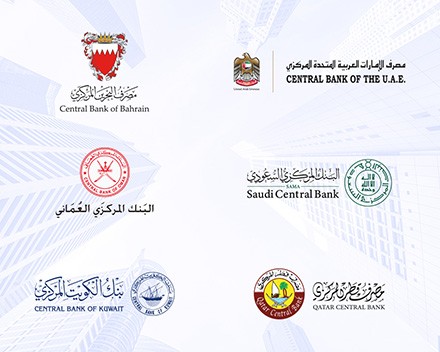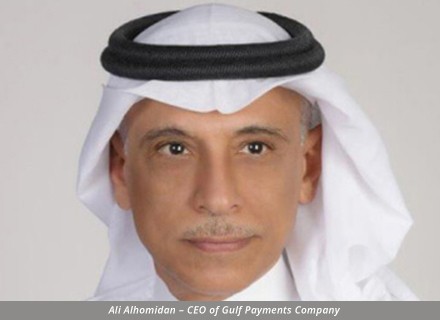The Gulf Payments Company (GPC) was established in accordance with the GCC Supreme Council Resolution in its thirty-seventh session, with the aim of building and developing a system that connects the GCC member states’ payment platforms by establishing an independent company owned and funded by the central banks in the GCC region.
International Finance recently caught up with the Gulf Payments Company management, who shared with us the details about the company’s functioning, its leadership structure, business principles and objectives, products and services offered by the company, and much more.
Q) When was the Gulf Payments Company established?
A) In 2016, due to the regional importance of cross-border payments, the Supreme Council of the GCC approved the establishment of the Gulf Payments Company (GPC). The vision and mission of GPC are to provide safe, efficient, and cost-effective cross-border payment services, leveraging cutting-edge technologies in accordance with the best of international standards and best practices.


Q) Who owns GPC?
A) GPC was established as a closed joint stock company whose shareholders are the GCC central banks, and the company is headquartered in Riyadh with another branch in Abu Dhabi. GPC is fully owned by the national central banks (NCBs) of the six GCC countries (United Arab Emirates, Kingdom of Bahrain, Kingdom of Saudi Arabia, Sultanate of Oman, Qatar, and Kuwait). Each NCB is represented by its Governor on the GPC Board in order to direct the GPC business.
By doing so, the Gulf Cooperation Council paved institutionally the way for regional payment services integration by means of a specialized publicly owned “Payments Infrastructure Company”.
This setting was and still is unique. It combines the experience and power of central banks in payments with the dynamics of a commercially organized payments company.
In order to support optimally the GPC objectives, the GPC Board decided to establish GPC as an infrastructure provider for payment service for individual NCBs, as well as for joint payment services for the community of GCC NCBs, leveraging economy of scale and economy of scope without involving an independent payment service provider. By doing so, NCBs have the ability to shape legal and business issues whereas GPC can focus on technical and operational service provisioning.
Q) What are the objectives of GPC?
A) The main objectives can be summarized as followed:
To offer a comprehensive and flexible infrastructure for payments in the Gulf region to provide various payment services and options to meet the market’s demand in compliance with the payment laws and regulations.
To manage and operate the AFAQ service, in pursuance of best international practices, to serve the interests of the participating countries and their people as well as set forth adequate strategies to manage and mitigate all types of risks.
Q) What services does GPC provide?
A) GPC payment services are and will be provided under the single label “AFAQ”. AFAQ, meaning horizon in Arabic, stands for Arabian Gulf System for Financial Automated Quick Payment Transfers, emphasizing the regional character of the services combined with the message to make payments more effective. Moreover, it expresses the overall will of the GCC and the NCBs to work commonly on that goal.
As a first step, the cross-currency AFAQ service went live in December 2021. It is offering RTGS transactions through NCBs’ national RTGS systems in domestic currencies cross-border and cross-currency between the GCC countries.
The second service planned under the AFAQ umbrella seeks to support single-currency payments.
In subsequent phases or if needed in parallel, under the AFAQ umbrella, GPC intends to support cross-border multilateral net clearing of orders submitted by regional clearing systems, as well as to provide outsourcing services requested by NCBs for executing domestic payments and settlements.
Q) How does AFAQ work?
A) GPC runs its own private data communication network that is scalable for a variety of services. On top of the data communication network, GPC provides gateway services for each of the NCBs.
Communication between NCBs/ banks of a country and the country’s Regional Payment Gateway is handled through national communication networks. The network and gateway services are supported by a secure cryptographic public key infrastructure.
Participants have to be NCBs or supervised financial institutions (a total of 180 approx. institutions) in any of the six GCC countries who are participants in the domestic RTGS system of their home country.
Participants have to comply with all relevant legal, technical, and operational requirements prior to being approved for participation by the GPC Board.
The accounts of Participants are held in the domestic RTGS system of their own country’s NCB.
Each day, NCBs will fix the applicable exchange rates for the business day for each of the six GCC currencies against each of the other GCC currencies and apply these rates to each cross-border transaction.
Cross-border payments are first accepted in the domestic RTGS system of the sending country on the sending Participant’s account. They are then routed via the Regional Payment Gateway to the Central Component and delivered to the Receiving Participant via the Regional Payments
Gateway and the domestic RTGS system of the receiving country. Payments are settled over the Inter-NCB Primary accounts with shadow postings to the accounts in the Central Component.
Payments are then sent in the currency of the sending country, converted at fixed exchange rates, and received in the currency of the receiving country.
A payment or transfer is considered to be immediately final upon debit and corresponding credit entry in the accounts provided by NCBs.
AFAQ uses the MT message formats for payment processing at the interface to NCBs. Internally AFAQ cross-currency uses ISO 20022 MX formats.

